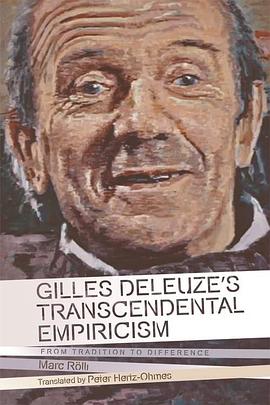Gilles Deleuze's Transcendental Empiricism
豆瓣
From Tradition to Difference
Marc Rölli 译者: Peter Hertz-Ohmes
简介
Deleuze’s readings of Hume, Spinoza, Bergson and Nietzsche respond to philosophical critiques of classical and modern empiricism. However, Deleuze’s arguments against those critiques – by Kant, Hegel, Husserl and Heidegger – consolidate the philosophy of immanence that can be called ‘transcendental empiricism’.
Marc Rölli offers us a detailed examination of Gilles Deleuze’s philosophy of transcendental empiricism. He demonstrates that Deleuze takes up and radicalises the empiricist school of thought developing a systematic alternative to the mainstreams of modern continental philosophy.
contents
PART I: EMPIRICISM / TRANSCENDENTALISM
1 Hume's Logic of External Relations
2 The Ambiguity of Kantian Thought
3 Kant's Transcendental Critique of Classical Empiricism
PART II: FROM PHENOMENON TO EVENT
4 Husserl's Concept of Passive Synthesis
5 Heidegger's Metaphysics of Finitude
PART III: DELEUZE'S TRANSCENDENTAL EMPIRICISM
6 The Paradoxical Nature of Difference
7 Virtuality of Concepts
8 Subjectivity and Immanence
Conclusion: Where Do We Go from Here? Lines of Flight